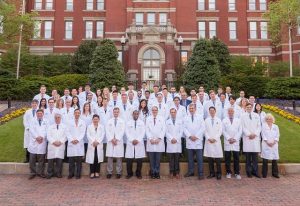In a survey study Agarwal et al. from the UPMC, Pittsburgh (Agarwal et al.); U Michigan, Ann Arbor (Zaki et al.) published in the *Journal of Neurosurgery* to evaluate neurosurgical faculty and trainee opinions on resident physician unionization via a 17‑question national survey. Survey sent to 551 faculty (chairs, PDs, SNS members) and 1,728 trainees (residents/fellows). Response rate was 17.8% (182 faculty, 223 trainees). Categorical responses analyzed with chi-square; significance at p < 0.05.
* Key Findings:
-
Faculty: 70% opposed unions; 54% felt unions negatively affect patient care; 80% feared strikes; 85% believed current channels were sufficient.
-
Trainees: Only 16% opposed unions; 9% thought unions impact patient care negatively; 27% feared strikes; 47% believed existing channels adequate (all p < 0.001).
-
Among those at programs with existing unions, 34.2% of faculty and 12.1% of trainees reported negative consequences—most commonly inability to enact discipline‑specific departmental changes.
-
Conversely, 84.8% of unionized residents cited benefits: enhanced pay, duty hours protection, parental leave, parking, and educational allowances
Critical Analysis
* Strengths:
-
National reach and representation of both faculty and trainees.
-
Direct comparison reveals stark divergence in perspectives.
-
Mix of quantitative and qualitative feedback on union effects.
* Limitations:
-
Modest response rate (17.8%) poses risk of non-response and selection biases.
